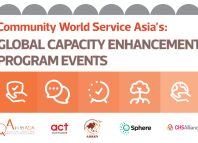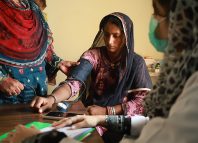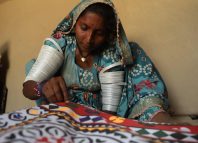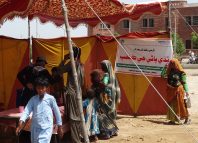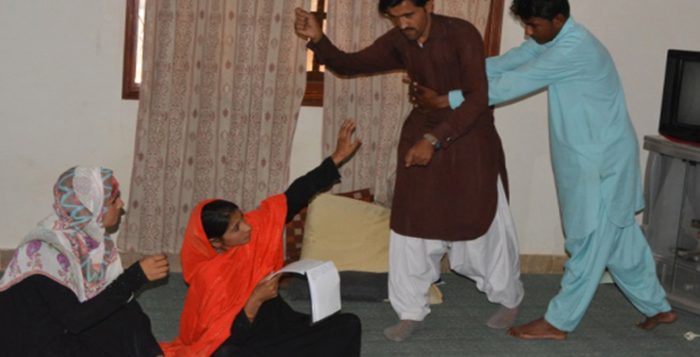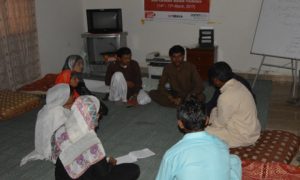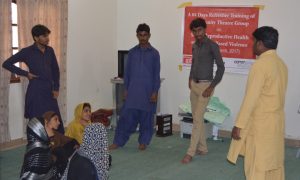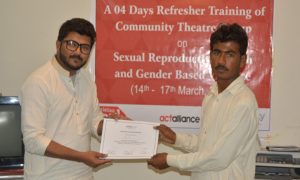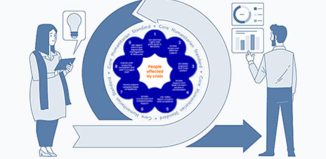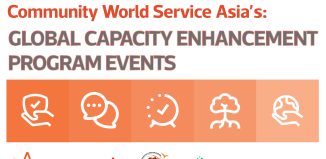Social Awareness through Theater in Sindh
Under the “Women economic empowerment through disaster resilience approach, Sindh Province Project, a four days refresher training on “Sexual Reproductive Health(SRH) and Gender Based Violence (GBV)” of a theatre group was conducted in mid-March of this year. The first training of its kind was conducted in the start of the year when project was initiated. The objective of the refresher training was to enhance the group’s performance skills, dramatisation techniques and develop a thorough understanding on the topics of SRH and GBV to better represent them on stage. Exercises to improve confidence levels and adaption of more audience interactive methods were also practiced in the training to increase audience attention and performance impact. It also aimed at prioritizing and highlighting the topic related issues to further build awareness among rural communities to change rigid mindsets.
Yousuf Dominic, a specialist consultant at Community World Service Asia, facilitated and lead this refresher workshop. Yousuf has an extensive experience of 22 years as a consultant trainer on various capacity building programs including gender equality, social mobilization and sexual reproductive health.
Before the start of this four day workshop, Yousaf had scheduled one whole day visiting the project field sites to observe the existing social and cultural gaps and to take note of field level operational issues. Ways to address the points noted during the field visit were carefully incorporated in the session plans of the workshop.
The training commenced with a brainstorming session in participation with all the theatre performers. At this session, Yousuf shared his findings and gave his feedback on the observations brought back from field. “I was glad to see the hard work and dedication the performers put in their work. However, more work needs to be done on early childhood marriages, health issues and women protection policies through more informative dialogues.” Yousaf emphasized on the importance of conducting social mapping in order to develop a clear understanding on common issues existing in the communities.
Thus, a social mapping exercise was carried out where participants were divided into groups. Each group identified various issues in their respective communities and the reasons behind their being. Each group then developed solutions for the issues identified and shared their proposed strategies with the others. This effective group activity allowed the participants to jointly identify five key issues, which were common among all communities:
Through this training, performers were enabled to write stories and performance scripts on the issues of sexual reproductive health and gender based violence through group exercises and thorough discussions. After evaluating the stories shared by the participants, Yousuf expressed the importance of authenticity in writing stories and representing real life examples. He further elaborated that performers may work on stories through social mapping and prioritize their issues and develop more needs based stories which would have more impact and relativity for audiences. In addition, Yousaf clarified, “Stories must have a clear introduction to the audience on the basic parameters and a very tangible reason, so that a positive and effective message is conveyed to the crowd.”
A story/show script was fully developed in the four day training through social mapping exercises. The participants wrote their dialogues keeping in mind the sensitivity of the issues. A final theater show was performed on the last day of the refresher training. Participants developed a comprehensive understanding on characterization and role plays during theatre shows. Their story and script skills were enhanced and specific capacity was built on plot construction and characterization. All participants were then awarded certificates for their contribution, commitment and participation.

